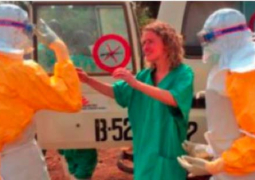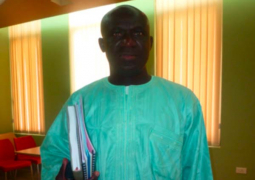He further pointed out that such disasters have been occurring in new areas and affecting more communities due to the effects of climate change.
Mr Darboe, Disaster Management and Food Security Coordinator and Disaster Law Programme Manager of the Gambia Red Cross Society (GRCS), said as result of the high level of disaster, humanitarian help have been coming from outside of the country to help in the relief efforts.
But there has been a common set of problems, including taxation or delays at customs and in the issuance of visas and work permit, he explained.
“Other issues arise out of the growing numbers and greater variety of international humanitarian actors, which make it much more difficult for the affected state, like The Gambia, to coordinate the assistance and to monitor the type and quality of the relief offered to its population,” Mr Darboe noted.
In order to comprehensively tackle the problems and other issues, the country has developed a disaster law strategy with the support of partners.
In the course of developing the strategy, a consultative meeting with GRCS, NDMA and the Office of the Vice President was held to look at the need for disaster law programme in The Gambia.
Also, the consultants have conducted a legal research on disaster laws in the country by looking at the existing national regulations and the ratified regional legal instruments that can affect international disaster response.
Upon the completion of the legal research report, Mr Darboe said the next steps include popularisation of the report, development of a cabinet paper on the recommendation for the development of disaster law, and preparation of a bill on disaster law for adoption by National Assembly of The Gambia.




